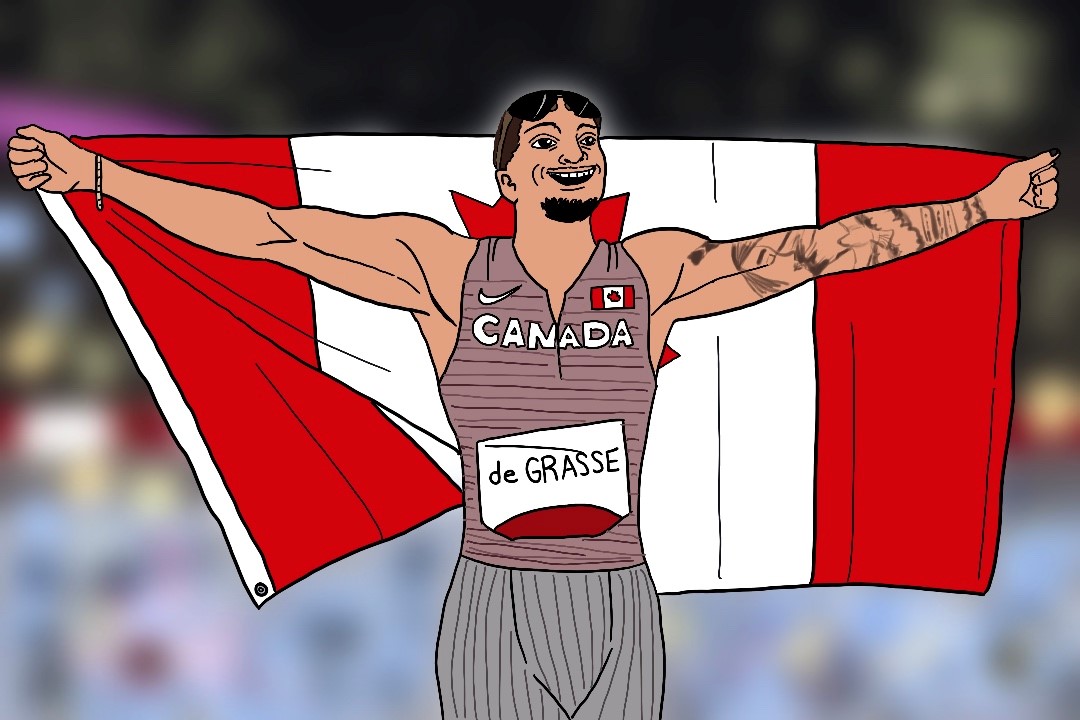Every four years — admittedly, five years in this iteration — the world comes to a halt, and politics turn into a friendly competition: a war with no losses. Every four years people escape and forget their problems for a short while in favour of cheering for Canadian icons such as Penny Oleksiak, the young prodigy who won four medals in Rio in 2016 at the young age of 16.
We forgot — or at least I did — that rent was due while we watched Damian Warner carry the Canadian flag into the closing ceremony after he made history by winning Canada’s first decathlon gold medal, cracking the Olympic record, and surpassing the ‘9000-point plateau’ with a total score of 9018 points.
Warner and Oleksiak weren’t the only Olympians to make Canada proud in Tokyo. The North earned a whopping 24 medals, seven of them gold, and achieved an 11th place finish in the process. This performance comes second only to the boycotted 1984 Los Angeles Olympic games, where Canada earned 44 medals, 10 of which were gold.
Canada kicked off the 2020 games with a prestigious silver medal on the second day in the women’s 4×100 metres freestyle, in which Oleksiak, Kayla Sanchez, Maggie Mac Neil, and Rebecca Smith beat the United States team by a fraction of a second. This win contributed to Oleksiak becoming the most decorated Canadian Olympian — alongside a bronze medal win in the 4×100 metres medley relay and 200 metres freestyle events. Mac Neil certainly found success in swimming, winning gold in the 100 metres butterfly, and Kylie Masse, the 25-year-old U of T alum, added two more individual silver medals to her resumé in the 100 metres and 200 metres backstroke events.
In the 4×100 metres relay, sprinter Andre De Grasse helped Canada earn a bronze medal, adding to his bronze in the 100 metre dash and gold in the 200 metre. De Grasse made history by being the first Canadian to win gold in the 200 metre since 1928.
However, one of the most satisfying events to watch was the women’s soccer final. After the Canadian team fell shy of winning gold in London 2012 and Rio 2016 but still made the podium with bronze medals, the Canadian soccer team edged out the Swedes in the penalties. The women’s soccer event added one of many significant firsts to Olympic history: Quinn became the first openly transgender, non-binary athlete to win a medal at an Olympic games.
Maude Charron made the Canadian anthem play for the first time in Olympic weightlifting after Christine Girard was robbed of her Olympic moment in London. Girard was awarded gold eight years later, but her win wasn’t recognized at the time, so “O Canada” was still played for the first time in Olympic weightlifting this year.
Jessica Klimkait won Canada’s first women’s Olympic judo medal, earning a spot on the podium in the 57-kilo division. Track cycling superstar Kelsey Mitchell sent the Canadians home on the final day of the Olympics on a high note as well by defeating Ukraine’s Olena Starikova and going for gold. Mitchell did not actually own a bike four years ago, so a gold medal finish is remarkable.
Thus, the Canadian Olympic story ended happily. After the closing ceremony, the Olympic flame was once again extinguished, and the Canadian Olympic committee welcomed their athletes home in a very heartwarming fashion — an outdoor drive-in celebration on August 12 in Toronto.


